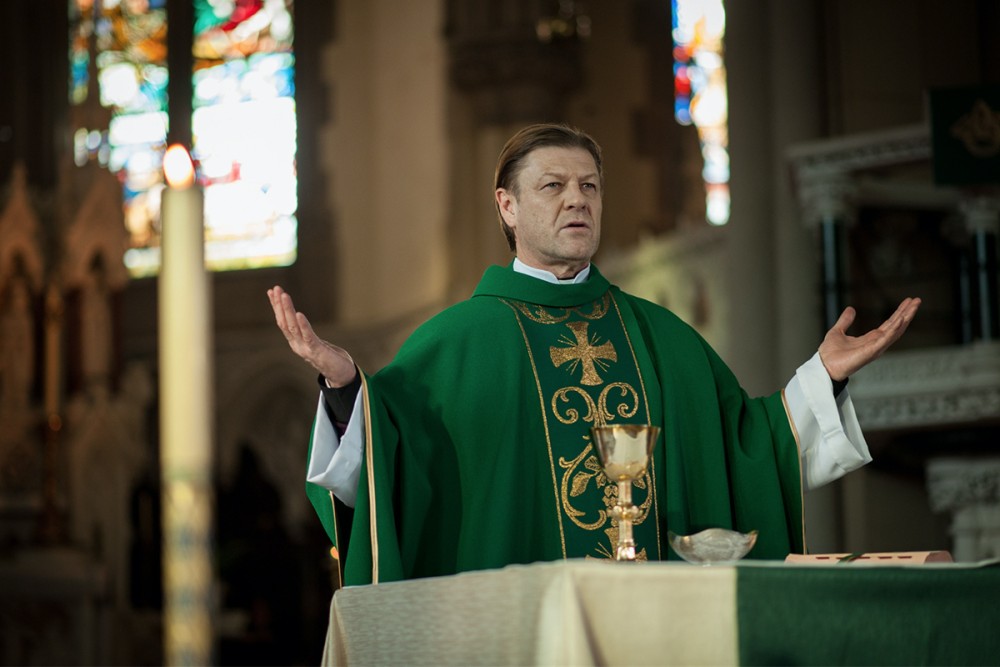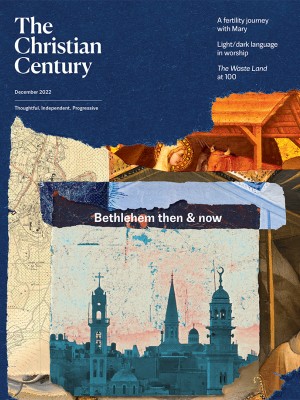The priest behind the screen
Oddly enough, some of the best TV shows about clergy come from secular Europe.

This year marks the 25th anniversary of what was at the time a daring experiment in putting religion on television: the sadly short-lived ABC series Nothing Sacred (1997–1998). This was a smart depiction of a Chicago Catholic priest, Francis Xavier “Ray” Reyneaux, played by Kevin Anderson, who must confront so many issues familiar to clergy: debates over women’s ordination, the presence of undocumented immigrants, and the general stresses of keeping the parish ministries going day by day.
The show gave an excellent sense of contemporary Catholic realities, in a way that many other efforts conspicuously did not, both then and now. (The show’s creator, Bill Cain, was himself a Jesuit priest). Father Ray emerged as an upstanding and even heroic figure, one clearly on the liberal end of the spectrum—and his stubborn resistance to his superiors made the series deeply controversial for conservatives. In retrospect, however, any such show that might be made today would have little option but to deal with far more explosive issues, especially child abuse by clergy. Looking back at Nothing Sacred today seems to take us to the Elysian days before the Fall.
Read our latest issue or browse back issues.
Clergy, of course, turn up in any number of fictional television shows. (You may recall the “hot priest” in Phoebe Waller-Bridge’s much lauded series Fleabag.) But has any other show explored clerical issues as knowledgeably and sympathetically as Nothing Sacred? I make no claim to comprehensive knowledge here, but several examples do stand out. I think of three in particular—interestingly, all from European countries generally regarded as quite secular.
The first is the Danish Herrens Vehe (2017–18), literally “The Ways of the Lord” but shown in the US under the title Ride Upon the Storm (see “Tempestuous faith on Danish TV,” Sept. 25, 2019). The show portrayed a clerical dynasty in Denmark’s established Lutheran church, which operates as an arm of the state, in a legal and political situation that will startle American viewers. Throughout, the clerical family must navigate dilemmas of faith and loyalty, to determine whether they are in fact anything other than civil servants in weird clothes.
American viewers are likely to identify far more readily with British shows, not just because of the language but because the situations they depict are more recognizable. One is Rev. (2010–2014), and available in the US on Britbox. The Rev. in question is Adam Smallbone, who moves from a bucolic country parish to the gritty and impoverished setting of East London. (Adam is played by Tom Hollander, and his wife by the wonderful Olivia Colman). The established Anglican church in the city is depicted as almost pathetically weak, in an environment where most of the lived religious activity is Muslim rather than Christian. Anglican newcomers from Africa and the Caribbean provide a welcome injection of Christian fervor.
The struggle to maintain a depopulated inner-city parish, with its venerable church building, will resonate with American Catholics, especially those attached to older, ethnic-based congregations. Among Rev.’s many well-drawn characters, I would single out the two diocesan bureaucrats who are reviewing all the urban parishes with the goal of selling off the real estate at a vast profit. They rarely succeed in concealing their greedy aims behind a mask of pastoral concern.
However dark at times, Rev. was undoubtedly a comedy. Far more serious was another show I would rank very highly, one which in many ways speaks directly to the memory of Nothing Sacred. In 2017, the miniseries Broken, also available on Britbox, portrayed a Catholic priest in a tough, poor urban parish in England’s Merseyside. The priest, Michael Kerrigan (Sean Bean), faces an accumulating series of crises that seem inevitably bound to destroy his ministry.
It would be easy, but misleading, to make Broken sound predictable and clichéd. Yes, one major plotline involves Kerrigan hearing the confession of a woman who is planning suicide: Can he break his vow of secrecy to help stop her? Surely, Alfred Hitchcock dealt with the dramatic potential of such situations quite thoroughly back in I Confess (1953). But this subject is magnificently handled in Broken. So are other themes that reflect Kerrigan’s struggles with the extreme poverty of his congregation. This is a world so poor that a family chooses to conceal the death of an elderly mother in order to keep her pension and welfare benefits coming in. The community is also violen, and torn by racism. A devout Catholic police officer faces real agony before he can stir up the courage to tell the truth about a lethal act of police violence, even though that will mean exposing the crimes of his closest colleagues and effectively ending his own career.
But no simple sketch of plot motifs gives any sense of the real qualities of Broken. Sean Bean gives a superb performance as a priest whose own vocation is hanging by a thread. More to the point, the series treats spiritual dimensions very seriously, much as Nothing Sacred did two decades before. At one point, another priest assures Kerrigan that he can find other resources for the problems he faces. Like what?, asks Kerrigan, hopefully, only to be told, “prayer.” Kerrigan then asks, bitterly, “Oh, is that all?” before realizing the total betrayal that he is thus offering of all the assumptions on which his life and his career are based. Although miracles and shining angels are conspicuous by their absence in Broken, it still represents a world in which spirituality really matters, even for the most troubled parish priests. So does prayer.
A version of this article appears in the print edition under the title "Priests on the small screen."







